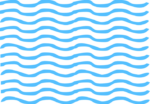GANGA
In the framework of the SDG 6 Clean Water and SDG 13 Climate Action the Ganga is one of the top rank endangered and critical rivers. The river provides water across 11 States, serving millions of people, more than any river in the world. Pollution of the Ganga and Climate Change poses significant threats to human health and the environment.
SDG’s AS INTEGRATED STRATEGY TOOLS

The Indian Government adopted the SDG’s as strategy already in 2018. Niti Aayog (National Institution for Transforming India) demonstrates SDG-results via the SDG-India-Index.
Rishikesh Upstream.NL is commited to the SDG’s as tool(s) specifically SDG 6 Clean Water and Sanitation, SDG 13 Climate Action, SDG 14 life below water and SDG 17 Partnerships for the goals. The prime goal is to achieve these goals near and around the source of the Ganga. We consider that actions indirectly will contribute to other SDG’s like the SDG 3 Good Health and well being, SDG 7 Affordable and Clean Energy, SDG 8 Decent work and economic growth and SDG 11 Sustainable Cities and communities.
We will investigate if an Indian SDG-house can have positively impact, this by sharing experiences with the Dutch SDG-house models and SDG Nederland.NL- Ministry BUZA/ foreign affairs.
AWARENESS
We are convinced that many business opportunities and policy measures that relate to River cleaning, Water storage & retention, Drinking water processing & distribution, Sanitation & sewage infrastucture, Wastewater processing, Landfill cleaning and Solid waste processing will depend fundamentally on:
- the awareness of citizens and local communities
- the awareness and action preparedness of governments
- the perspective for knowledge institutes, companies, entrepreneurs and their active networks
- the availability of knowledge and skilled people to develop, build, operate, manage and maintain various facilities and businesses
- the awareness that the synergies between projects and interventions depend on the availability of networks between citizens, governments, knowledge institutes and businesses and on their sharing of information and knowledge about projects and activities
- the readiness and willingness for investors/ companies/ entrepreneurs to act
- the awareness of an everything – everywhere – all at once approach
OBSERVATIONS – LESSONS LEARNED
We observe that at this moment most businesses, governments and local communities deal with these issues piece-wise and within the framework of their own circle of influence and their (legal or moral) obligations.
We observe that these circumstances limit the potential of future solutions for these issues to the smaller scales and thus prevents future potential at a larger scale. All (citizens, business, the environment and more) will benefit from larger scale developments such as securing impact for a long time.
We therefore believe in projects along the Ganga as a chain of related interventions (water, waste, energy) building upon each other.
CONFIRMATIONS – ALL AT ONCE APPROACH
The UN2023 Water-conference confirmed our strategy in words as:
- “… urging the world to embrace an everything, everywhere, all at once approach to confront challenges head-on”
- “… an integrated approach is a condition for long-term guaranteed impact”.
THE ROLE OF THE CENTRE
We embrace an integrated approach of policies, projects and interventions and propose that these will be facilitated by a regional Centre of Expertise & Entrepreneurship for enhancing their long term sustainable impact – SDG’S. Key elements are knowledge transfer (training & education), knowledge creation (research & development) and value creation through innovation of products and services by application in field projects with good business cases.

